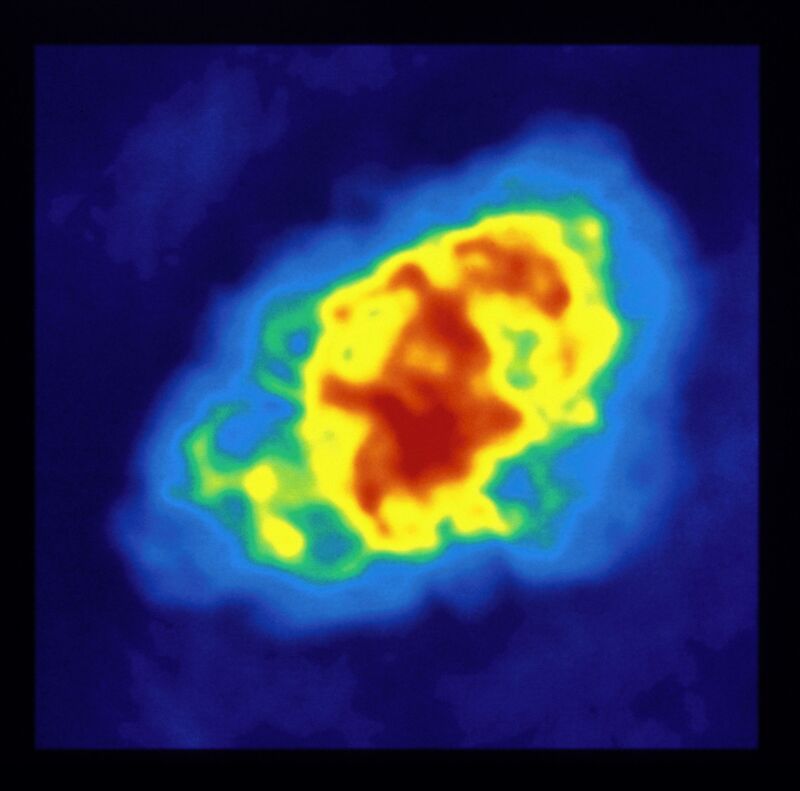Crab Nebula (M1)
Description
The Crab Nebula (M1) is the remnant of the earliest known supernova explosion, recorded by Chinese astronomers in AD 1054. A novel technique developed by radio astronomers during the design of a proposed new telescope has allowed them to make a radio image of the Crab Nebula with much improved accuracy. This technique, Homogeneous Mosaicing, has been developed as part of the design effort leading to NRAO's proposal of the Millimeter Array. This is a method for expanding the field of view of the interferometric telescopes beyond the limit imposed by the small field of view of the array elements: data from an interferometric array are combined with low resolution, total power data acquired with the same antennas (as the VLA is not equipped for total power, those data were obtained using a VLBA antenna of the same size.) A joint deconvolution provides information on all spatial scales ranging from the full high resolution of the array up to many times the field of view of a single antenna. This image was made using the NRAO Very Large Array and one element of the NRAO Very Long Baseline Array used as a single dish. The total flux is 498 Jy, 40% higher than the previous best VLA image. This result directly affects spectral index studies of the Crab Nebula, which are crucial to understanding the physical processes that determine its shape and evolution.
VLA Config. - D using 27 antennas.
Creator
Legacy Astronomical Images
Rights
NRAO/AUI/NSF does not hold full copyright for this image. Contact the archivist for details.
Type
Legacy Astronomical Image
Object Name
M1
Investigators
J.M. Uson, T.J. Cornwell
Telescope
Very Large Array (VLA)
Very Long Baseline Array (VLBA)
Type of Observation
continuum
Center of Image
RA 5:34:31.970, Dec: 22:0:52.100 (B1950)
Field of View
0.333300 x 0.333300 degrees
Notes
Contact the archivist for a high resolution tif of this image.
Series
Galactic Sources Series
Unit
Black Holes Unit
Citation
Legacy Astronomical Images, “Crab Nebula (M1),” NRAO/AUI Archives, accessed April 29, 2025, https://www.nrao.edu/archives/items/show/33421.

